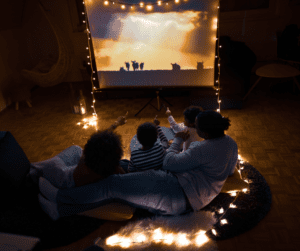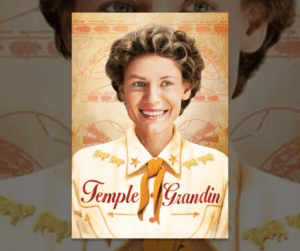When it comes to portraying autism spectrum disorder (ASD) in movies, accurate and positive representation is crucial. Not only does it provide individuals with autism the opportunity to see themselves reflected on screen, but it also helps to raise awareness and understanding of neurodiversity among neurotypical audiences. Movies have the power to inspire, educate, and bring joy, making them a valuable platform for showcasing the diverse experiences of people with autism.
Why Representation Matters in Movies
 The portrayal of characters with autism in movies holds immense power in molding societal views and fostering a climate of understanding and acceptance. When movies accurately and positively reflect the experiences of individuals with autism, they do more than entertain; they serve as vital tools for education and empathy-building. Such representations challenge prevailing stereotypes and myths surrounding autism, encouraging a more inclusive society.
The portrayal of characters with autism in movies holds immense power in molding societal views and fostering a climate of understanding and acceptance. When movies accurately and positively reflect the experiences of individuals with autism, they do more than entertain; they serve as vital tools for education and empathy-building. Such representations challenge prevailing stereotypes and myths surrounding autism, encouraging a more inclusive society.
Seeing characters with autism navigate life’s challenges and triumphs on screen can profoundly resonate with individuals with ASD, offering them a mirror to their own experiences and aspirations. For neurotypical viewers, these stories work to demystify autism, paving the way for genuine connections and a deeper appreciation of neurodiversity.
While some films have missed the mark, focusing on sensationalism or inaccuracies, the tide is turning. A growing number of movies are embracing the authenticity and richness of the experience of individuals with autism, contributing to a more nuanced and respectful cinematic dialogue around autism. This evolving landscape not only celebrates the diversity of the human experience but also underscores the essential role of ASD representation in cultivating a more empathetic and understanding world.
Movies That Shine a Light on Autism
 In the wide world of cinema, movies that accurately and positively represent ASD play a pivotal role in not only demystifying but actively celebrating the experiences of those on the spectrum. These films not only entertain but also enlighten, fostering a deeper understanding and appreciation of neurodiversity.
In the wide world of cinema, movies that accurately and positively represent ASD play a pivotal role in not only demystifying but actively celebrating the experiences of those on the spectrum. These films not only entertain but also enlighten, fostering a deeper understanding and appreciation of neurodiversity.
“Rain Man,” (rated R) despite its critiques, was a trailblazer in bringing autism to the forefront of Hollywood, with Dustin Hoffman’s nuanced performance highlighting the intricacies of ASD.
“Temple Grandin” (rated PG) brilliantly showcases the life of an autism advocate and animal scientist, offering an inspiring look at overcoming obstacles.
“A Brilliant Young Mind” (rated PG-13) delicately navigates the journey of a math prodigy with autism, highlighting themes of friendship and acceptance.
Amid the successes and the learning curves, the growing tapestry of films that respectfully and accurately portray autism signifies a positive shift towards inclusivity and understanding in the cinematic world.
Celebrating Talented Individuals with Autism in Movies
The film industry is gradually embracing the invaluable contributions of autistic individuals, marking a significant step towards authentic and multifaceted portrayals on screen. Movies like “Loop” (not rated), a Pixar short featuring a non-verbal girl with ASD, and “Music” (rated PG-13), despite its controversy for casting choices, underline the complex dialogue surrounding representation.
What sets certain films apart is their commitment to inclusivity, not just in casting but in considering the perspectives and insights of those with lived experience. For instance, “Please Stand By” (rated PG-13), starring Dakota Fanning supported by actors with autism in the cast, and “Keep the Change” (not rated), a romantic comedy featuring actors with autism, exemplify how integrating ASD talent can enrich storytelling, offering audiences a window into the nuanced realities of life on the spectrum.
These efforts underscore a growing awareness within the industry of the need to move beyond tokenism to genuine representation, ensuring that voices of individuals with autism are heard, respected, and celebrated. Through such endeavors, film becomes a powerful platform for challenging stereotypes and inspiring a more inclusive world, one story at a time.
Learning from Less Successful Adaptations
 Navigating the cinematic landscape of autism representation in movies comes with its share of learning curves. While many films have beautifully captured the essence of living with autism, creating deeply resonant and authentic portrayals, there are instances where movies haven’t quite hit the mark.
Navigating the cinematic landscape of autism representation in movies comes with its share of learning curves. While many films have beautifully captured the essence of living with autism, creating deeply resonant and authentic portrayals, there are instances where movies haven’t quite hit the mark.
For example, while “The Accountant” (rated R) aimed to present a unique protagonist with autism, it inadvertently leaned into sensationalism, veering away from the nuanced and realistic depictions that foster true understanding and acceptance. Recognizing less successful adaptations like this one is not about diminishing the creative efforts behind these projects, but about acknowledging the importance of engaging directly with the ASD community.
It’s through constructive feedback and open dialogues with individuals with lived experiences of autism that filmmakers can steer away from stereotypes and towards portrayals that genuinely reflect the diversity and richness of the autism spectrum. This learning process is vital in evolving our collective narrative around autism in movies, ensuring that future portrayals are not only accurate and positive but also celebrate the full spectrum of ASD experiences.
How to Support Authentic Representation
 Embracing movies that portray ASD with accuracy and respect is a critical step toward fostering an environment of inclusivity and understanding. By thoughtfully choosing movies that celebrate the complexities and triumphs of individuals with autism, we as viewers contribute to a demand for more authentic narratives.
Embracing movies that portray ASD with accuracy and respect is a critical step toward fostering an environment of inclusivity and understanding. By thoughtfully choosing movies that celebrate the complexities and triumphs of individuals with autism, we as viewers contribute to a demand for more authentic narratives.
Highlighting and sharing films that get it right—those that delve into the lived experiences of autism without resorting to stereotypes or inaccuracies—encourages filmmakers to prioritize genuine representation. By recognizing and discussing the aspects where certain films fall short, we engage in a constructive dialogue that paves the way for improvement.
Support extends beyond viewership; it involves championing autism voices in the industry, from actors to writers, ensuring their perspectives shape the stories told. Through these actions, we both enrich our own viewing experiences and play a part in creating a more accepting and empathetic society, where every film can be a window into the diverse world of autism.
